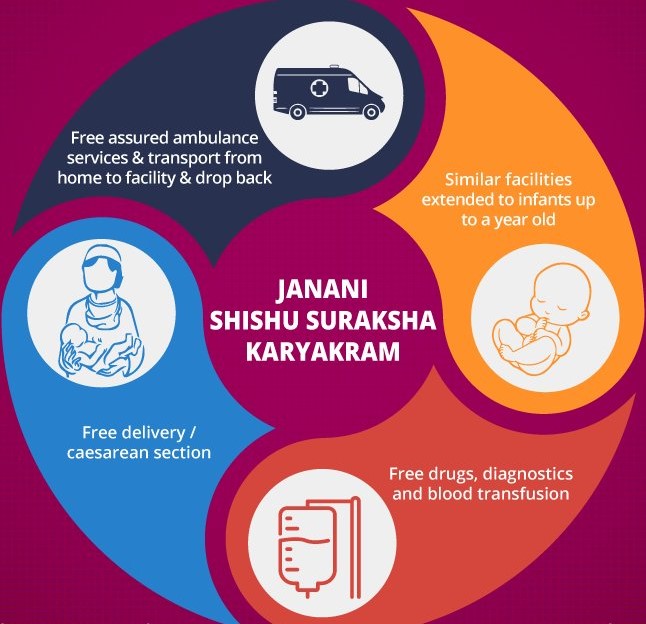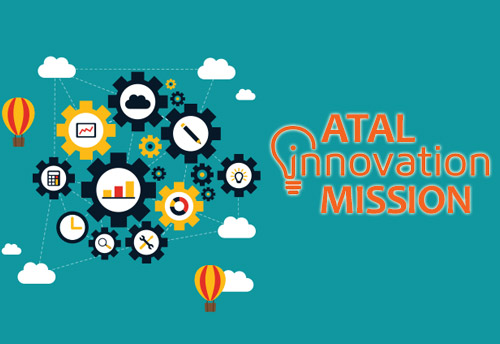

In an era marked by increasing global challenges, social initiatives have assumed paramount importance. Governments, non-profit organisations, and concerned citizens are continuously working towards addressing issues like poverty alleviation, healthcare access, education, and environmental conservation. One promising approach that has gained significant traction in recent years is Public-Private Partnerships (PPPs). These collaborative endeavours between the public and private sectors have proven to be game-changers in achieving the desired outcomes for social initiatives. This article explores how PPP programmes have succeeded in delivering impactful results, contributing to a better world for all.
Understanding Public-Private Partnerships (PPPs)
Public-Private Partnerships, commonly known as PPPs, are agreements between government bodies and private sector entities. These partnerships leverage the strengths of both sectors to tackle complex societal challenges. The fundamental idea behind PPPs is that by combining resources, expertise, and innovation of public and private entities, more comprehensive and sustainable solutions can be found.
Social initiatives can be fraught with uncertainties and risks. PPPs distribute these risks more evenly between the public and private sectors. Private companies often assume responsibility for project financing and operational risks, incentivising them to manage projects efficiently and effectively to avoid financial losses. This risk-sharing model ensures a higher level of accountability and commitment to project success.
Key Success Factors of PPPs
Resource Mobilisation
One of the primary reasons PPPs have succeeded in achieving social initiative goals is their ability to mobilise resources efficiently. Public funds can be limited, and private companies often have the required financial resources to invest in projects that promote social welfare. By pooling resources, PPPs can finance and implement large-scale initiatives that would otherwise be unattainable.
Expertise and Innovation
Private sector entities bring a wealth of expertise and innovation to the table. They are accustomed to operating efficiently, utilising the latest technologies, and adapting quickly to changing circumstances. When PPPs partner with government agencies with experience in navigating regulatory frameworks and public service delivery, they create a synergy that enables the implementation of projects with higher success rates.
Risk Sharing
Social initiatives can be fraught with uncertainties and risks. PPPs distribute these risks more evenly between the public and private sectors. Private companies often assume responsibility for project financing and operational risks, incentivising them to manage projects efficiently and effectively to avoid financial losses. This risk-sharing model ensures a higher level of accountability and commitment to project success.
Accountability and Transparency
Transparency and accountability are critical components of PPP success. Governments and private entities usually enter into detailed contracts that outline the roles, responsibilities, and performance metrics of each party. This contractual framework ensures that both sides are held accountable for their commitments, reducing the potential for mismanagement and corruption.
Examples of Successful PPP Initiatives
Healthcare Access
In many parts of the world, access to quality healthcare is limited, particularly in remote and underserved areas. Public-Private Partnerships (PPPs) have emerged as a powerful solution to address this pressing issue. PPPs in the healthcare sector have played a crucial role in building and managing healthcare facilities, supplying essential medical equipment, and enhancing the skills of healthcare professionals.
 For example, initiatives like the Janani Suraksha Yojana and the National Health Mission in India highlight successful collaborations between the government and private healthcare providers. These partnerships have led to the establishment of affordable and accessible healthcare services for millions of people, especially in rural and marginalised communities. By leveraging private sector expertise and resources, these PPPs have significantly improved healthcare outcomes, reduced maternal and child mortality rates, and enhanced the overall health infrastructure.
For example, initiatives like the Janani Suraksha Yojana and the National Health Mission in India highlight successful collaborations between the government and private healthcare providers. These partnerships have led to the establishment of affordable and accessible healthcare services for millions of people, especially in rural and marginalised communities. By leveraging private sector expertise and resources, these PPPs have significantly improved healthcare outcomes, reduced maternal and child mortality rates, and enhanced the overall health infrastructure.
World-class infrastructure is essential for economic growth and improving the overall quality of life. PPPs have played a pivotal role in developing critical infrastructure projects. Examples such as the Mumbai-Pune Expressway, Delhi Airport, and Delhi Metro showcase the success of public-private collaborations in infrastructure development.
Education
Quality education is a fundamental right and a key driver of social and economic development. PPPs have recognised the critical role they can play in improving educational quality and accessibility. In addition to constructing schools and providing essential infrastructure, these partnerships extend to curriculum development and teacher training programmes.
 Partnerships with private educational institutions have been pivotal in enhancing educational outcomes. Initiatives like Sarva Shiksha Abhiyan and Atal Innovation Mission in India exemplify successful collaborations in education. Sarva Shiksha Abhiyan focuses on achieving universal elementary education, while Atal Innovation Mission promotes innovation and entrepreneurship among students. These initiatives have improved educational access, fostered innovation and creativity in the learning process, and equip students with the skills needed for a rapidly changing world.
Partnerships with private educational institutions have been pivotal in enhancing educational outcomes. Initiatives like Sarva Shiksha Abhiyan and Atal Innovation Mission in India exemplify successful collaborations in education. Sarva Shiksha Abhiyan focuses on achieving universal elementary education, while Atal Innovation Mission promotes innovation and entrepreneurship among students. These initiatives have improved educational access, fostered innovation and creativity in the learning process, and equip students with the skills needed for a rapidly changing world.
Skill Development
Empowering individuals with the skills needed for gainful employment is a cornerstone of economic development. PPPs have recognised the importance of skill development programmes in enhancing employability. Private sector involvement in skill development initiatives ensures alignment with industry needs and facilitates job placements, bridging the gap between education and employment.
 Initiatives like the Pradhan Mantri Kaushal Vikas Yojana (PMKVY) in India have been instrumental in providing skill development programmes to a diverse range of individuals. PMKVY’s partnership model with private training providers has enabled the delivery of industry-relevant training, leading to improved employability and income generation. This benefits individuals and contributes to economic growth by providing skilled workers to industries.
Initiatives like the Pradhan Mantri Kaushal Vikas Yojana (PMKVY) in India have been instrumental in providing skill development programmes to a diverse range of individuals. PMKVY’s partnership model with private training providers has enabled the delivery of industry-relevant training, leading to improved employability and income generation. This benefits individuals and contributes to economic growth by providing skilled workers to industries.
Infrastructure Development
World-class infrastructure is essential for economic growth and improving the overall quality of life. PPPs have played a pivotal role in developing critical infrastructure projects.  Examples such as the Mumbai-Pune Expressway, Delhi Airport, and Delhi Metro showcasethe success of public-private collaborations in infrastructure development.
Examples such as the Mumbai-Pune Expressway, Delhi Airport, and Delhi Metro showcasethe success of public-private collaborations in infrastructure development.
The Mumbai-Pune Expressway, for instance, has transformed connectivity between two major Indian cities, reducing travel time and boosting trade and tourism. These infrastructure projects enhance the urban landscape, generate employment opportunities and stimulate economic growth in the regions they serve.
Empowering Economically
PPPs contribute significantly to economic growth and poverty reduction by generating employment opportunities and fostering skill development. Skill development initiatives, in particular, empower individuals to contribute effectively to the economy.
By providing training and employment opportunities, PPPs help individuals break the cycle of poverty and build sustainable livelihoods. This economic empowerment has a positive ripple effect on communities, leading to improved living standards and reduced income inequality.
Public-Private Partnership programmes have proven to be a powerful tool in achieving desired outcomes for social initiatives. By harnessing the strengths of both the public and private sectors, PPPs mobilise resources, expertise, and innovation to tackle complex societal challenges effectively. While challenges exist, they are surmountable with the right regulatory frameworks, transparent contracts, and commitment from all stakeholders. As the world continues to grapple with pressing social issues, PPPs offer a promising path towards a more equitable and sustainable future for all.
Renewable Energy
Addressing climate change is a global imperative, and PPPs have played a vital role in developing renewable energy projects that reduce carbon emissions. Initiatives involving wind farms and solar power plants contribute to mitigating climate change, create jobs and provide affordable, clean energy to communities.
These renewable energy projects offer a sustainable alternative to fossil fuels, reduce greenhouse gas emissions, and contribute to energy security. Furthermore, the involvement of private sector expertise ensures that these projects are executed efficiently and cost-effectively, maximising their impact on both the environment and the economy.
Water and Sanitation
Access to clean water and sanitation is fundamental to public health and well-being. PPPs have demonstrated success in improving water supply and sanitation infrastructure in various countries.
 Through partnerships, communities gain access to safe drinking water and proper sanitation facilities, leading to improved health outcomes, reduced waterborne diseases, and an overall enhancement in the quality of life. These initiatives underscore the potential for public-private collaborations to address critical issues related to water and sanitation on a global scale.
Through partnerships, communities gain access to safe drinking water and proper sanitation facilities, leading to improved health outcomes, reduced waterborne diseases, and an overall enhancement in the quality of life. These initiatives underscore the potential for public-private collaborations to address critical issues related to water and sanitation on a global scale.
Challenges and Solutions
While PPPs have shown remarkable success in achieving social initiative outcomes, they are not without challenges. Some common issues include:
Regulatory Hurdles Complex regulatory frameworks can hinder the implementation of PPP projects. Governments can streamline these processes and create conducive environments for private sector participation.
Contractual Disputes Disagreements between public and private partners can disrupt project progress. Developing clear and comprehensive contracts with dispute-resolution mechanisms can mitigate these issues.
Fiscal Constraints Economic downturns can strain government budgets, making it challenging to fulfill financial commitments. Creative financing mechanisms, such as blending public and private capital or involving development finance institutions, can help overcome this challenge.
Conclusion
 Public-Private Partnership programmes have proven to be a powerful tool in achieving desired outcomes for social initiatives. By harnessing the strengths of both the public and private sectors, PPPs mobilise resources, expertise, and innovation to tackle complex societal challenges effectively. While challenges exist, they are surmountable with the right regulatory frameworks, transparent contracts, and commitment from all stakeholders. As the world continues to grapple with pressing social issues, PPPs offer a promising path towards a more equitable and sustainable future for all.
Public-Private Partnership programmes have proven to be a powerful tool in achieving desired outcomes for social initiatives. By harnessing the strengths of both the public and private sectors, PPPs mobilise resources, expertise, and innovation to tackle complex societal challenges effectively. While challenges exist, they are surmountable with the right regulatory frameworks, transparent contracts, and commitment from all stakeholders. As the world continues to grapple with pressing social issues, PPPs offer a promising path towards a more equitable and sustainable future for all.

